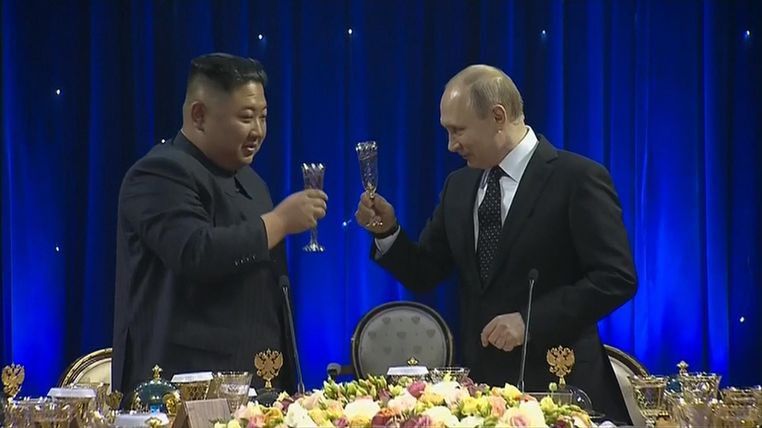Two countries ostracised by the West- Russia and North Korea– are forging closer ties. Russian President Vladimir Putin wrote to North Korea’s Supreme Leader and Workers’ Party leader Kim Jong-Un to mark Korea’s Liberation Day (15th August). In the letter, President Putin remarked that it was in the interests of both countries to “expand the comprehensive and constructive bilateral relations with common efforts,” North Korean news agency KCNA reports. Central to this unity lies the need to repel American influence in the Korean peninsula and the broader Northeast Asian region.
Also Read: 5 countries share their Independence Day with India. Find out
Kim wrote back to his Russian counterpart, pointing to the long history of Korean-Russian friendship dating back to World War II. The Soviet Union- pitted against the Axis powers- had defeated Japan’s Imperial Army across Manchunko, Inner Mongolia, Northern Korea and other nearby regions, effectively forcing their surrender. Japanese Emperor Hirohito announced the same on this day, 77 years ago, granting the Peninsula freedom from its rule.
While alluding to their historical bonds, Kim highlighted the “strategic and tactical cooperation, support and solidarity” between the two countries, one that has only built over time, especially in light of provocations from “hostile military forces,” reports KCNA. It is by no means unclear who these hostile forces are: The United States and its allies in the region, notably South Korea and Japan.
The two signed an agreement in 2019, and its effects are palpable in these geopolitically charged times. After the Russian-backed twin republics of Donetsk and Luhansk (collectively known as Donbass) declared their independence from Ukraine, North Korea was one of the first nations to recognise their claim. North Korea has pledged to send its workers to help rebuild areas in the Donbass region damaged by the conflict.
Also Read: Russia-Ukraine War: Threat of nuclear disaster looms after shellings on Zaporozhskaya nuclear plant
The geopolitical machinations at large further indicate a shift away from the unipolar world that emerged after the fall of the Soviet Union. The United States hegemony is facing a steady assault from an emergent bloc helmed by China and Russia. The North Koreans, for decades crippled by Western sanctions and neighbourly military threats, seek to come out of the shadows through such necessary alliances.







